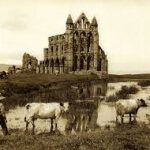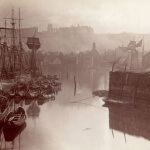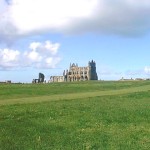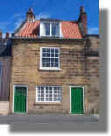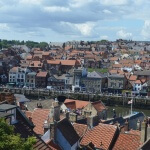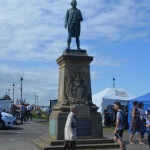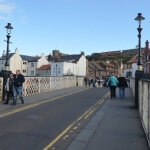Francis Meadow (Frank) Sutcliffe
(6 October 1853 – 31 May 1941)
Frank Sutcliffe was an English pioneering photographic artist whose work presented an enduring record of life in the seaside town of Whitby, England, and surrounding areas, in the late Victorian era and early 20th century.
He made a living as a portrait photographer, working first in Tunbridge Wells, Kent then for the rest of his life in Whitby, living in Broomfield Terrace in Whitby before moving to Sleights, Yorkshire. His father had brought him into contact with prominent figures in the world of art such as John Ruskin, and he resented having to prostitute his art taking photographs of holiday-makers. His business in Skinner Street rooted him to Whitby and the Eskdale valley but, by photographing the ordinary people that he knew well, he built up a most complete and revealing picture of a late Victorian town, and the people who lived and worked there.
His most famous photograph was taken in 1886; Water Rats caused a little comment at the time as it featured naked children playing in a boat, but the image is not erotic. Sutcliffe was using the conventions of the academic nude to show how photography can approach art. He was, however, excommunicated by his local clergy for displaying it, as they thought it would ‘corrupt’ the opposite sex. Edward VII (then the Prince of Wales) later purchased a copy of the picture.
He was a prolific writer on photographic subjects, contributed to several periodicals, and wrote a regular column in the Yorkshire Weekly Post. His work is in the collection of the Whitby Literary and Philosophical Society and in other national collections.

